These days, with busy lives, active schedules, and, let’s face it, bad habits, it’s easy to let good nutrition fall by the wayside.
Unfortunately, poor nutrition can cause other problems besides weight gain. Evidence shows that good nutrition is as important to your smile as it is to your waistline. When you consider the nutrients necessary for bone health—calcium, vitamin D, vitamin K, and protein—they are also essential for good dental health. But what else do your nutrition and oral health have in common besides bone health, and what can you do to become healthier in the long term? At Penn Dental Family Practice, we’ve brought together five easy yet important steps you can take to improve both overall and dental nutrition, starting now.
5 Steps to Take for Good Nutrition and Oral Health
When you think about it, oral health and whole body health start together at the same place: your mouth.

Whatever you put into your mouth affects everything it comes in contact with. You really are what you eat. So by making the right choices and following proper oral hygiene, you can make a big difference to your overall well-being and quality of life.
1. Drink plenty of water. Water washes away food particles that can cause decay, promotes saliva production, and plays a vital role in hydration, which helps with brain function, energy levels, cell production, headache relief, weight loss, and much more.
2. Follow a well-balanced diet for healthy teeth and good health. It should include protein, fibrous vegetables and fruits, and complex carbohydrates that provide essential vitamins and minerals.
a. Fruits and vegetables not only help provide essential vitamins and minerals, but their fibers also help clean the teeth, and their high water content helps wash away food particles and promote saliva. b. Complex carbs reduce inflammation throughout the body, including the gums.
c. Protein builds muscles, repairs tissues, and contains phosphorus, a mineral critical to improving teeth and jaw strength.
d. Calcium helps keep bones strong and also helps rebuild tooth enamel and produce more saliva. Find it in dairy products, vegetables, and leafy greens such as broccoli, cauliflower, figs, olives, collards, kale, and spinach.
e. Magnesium is responsible for remineralizing the teeth and bones by controlling the balance of other nutrients in the body. Sources of magnesium include squash seeds, leafy greens, and avocado.
f. Vitamin C helps form blood vessels, cartilage, muscle, and collagen in bones. It is also vital to your body’s healing process and strengthens the gums and soft tissues in the mouth. Vitamin C protects against gum diseases such as gingivitis. Find it in citrus fruits, berries, potatoes, tomatoes, peppers, cabbage, Brussels sprouts, broccoli, and spinach.

g. Vitamin D is necessary to absorb calcium, phosphorus, and other substances to remineralize the teeth. The best way to get enough of it is through supplements, but you can find natural sources in foods such as salmon, tuna, mushrooms, and egg yolks.
Although the number of essential foods, vitamins, and minerals may seem daunting, remember that they are easily accessed in a well-balanced diet that naturally includes foods good for teeth, foods that strengthen teeth, and foods that prevent tooth decay.
3. Snack less frequently and avoid sweets. Limiting how often you eat keeps your teeth and mouth cleaner, so there’s less chance of decay. And it also helps control calorie intake. As for sweets, sugar is a magnet for harmful bacteria such as streptococcus mutans and streptococcus sobrinus that feed on sugar. They form dental plaque, making the mouth’s environment more acidic. The acid can dissolve the minerals in your teeth, destroying tooth enamel and forming holes.
4. Practice good oral hygiene with thorough brushing twice a day and flossing daily. Plus, replace your toothbrush every three to four months or sooner if the bristles are worn or splayed. These practices also help ensure that disease or decay won’t contribute to other health conditions such as cardiovascular disease, endocarditis, or pneumonia.
5. Visit your dentist twice a year for cleanings and exams. Here at Penn Dental Family Practice, we can help you keep your smile and health at their very best. Let us help you keep your smile at its very best—contact us online or call us at 215-898-7337 to make an appointment.
Additional Resources for Good Nutrition and Oral Health
Taking these five steps can improve both oral and overall health in our patients. We encourage you to check out our informative Penn Dental Family Practice dental tips to learn more. You may also want to download our complimentary Introduction to Cosmetic Dentistry to find out how we can transform your smile.
Through education and preventive care, the Penn Dental Family Practice staff is dedicated to supporting your optimal oral health and well-being. Let us help you keep your smile at its very best. Contact us online or call us at 215-898-7337 to make an appointment to see us soon.


